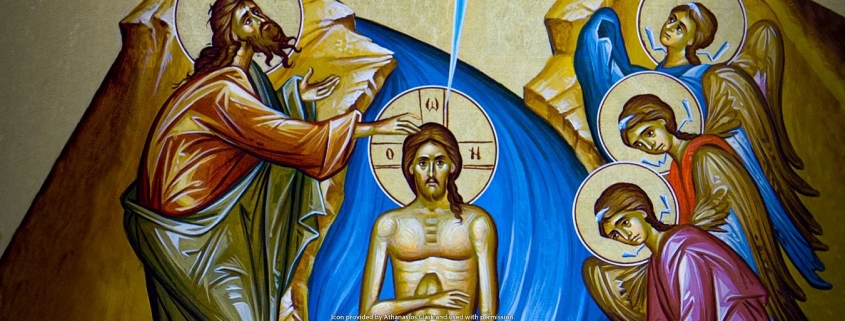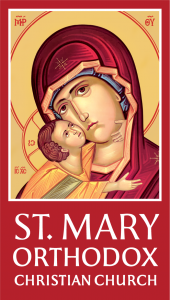On Epiphany, Part One By Metropolitan Saba (Isper)
Christmas remained connected to the feast of Epiphany, in the early Church, until the fourth century. After Christianity became a recognized religion in the Roman Empire, and then the state religion, the Church made the birth of the Lord in the flesh an independent feast, separated it from Epiphany, and appointed the feast of the sun as its date. The feast of the sun was a popular pagan feast, accompanied by celebrations unworthy of Christians. The Church had baptized, or Christianized, the pagan feast and shifted its center from the visible sun to Christ, the “sun of justice,” as the Church chants in the apolytikion of Christmas. In the Orthodox Churches, theologically, attention is focused more on the feast of the Epiphany than on Christmas. The theological significance of the Feast of the Epiphany makes it the third feast, after Easter and Pentecost.
The feast of Epiphany is popularly called the “diving” (in Arabic, ghattas). The verb “diving” is parallel, in meaning, to the verb “baptized” in the Greek language. Hence, the literal meaning of the word “baptism” in Greek is “immersion.” Therefore, Orthodox people consider this holiday as a feast for everyone whose name is “Ghattas,” like our metropolitan of Baghdad and Kuwait. In Orthodox countries, it is customary for a priest to go out with the faithful people, after the Holy Liturgy on the morning of the feast to a lake, seashore, or river, where he throws a metal cross. Young people dive into the water to retrieve it. This tradition is still alive today.
However, the ecclesiastical name is Epiphany, because the Hypostases (Persons) of the Holy Trinity were clearly revealed to mankind, for the first time, during the baptism of Christ. Mankind heard the voice of the Father, saying: “This is my beloved Son, in whom I am well pleased” (Mt. 3:17), the Son was present and baptized, and the Holy Spirit appeared in the form of a dove, which descended on him. This revelation is obvious in the well-known apolytikion of the Feast: “By Your baptism O Lord…” The hymn of preparation for the feast talks about the appearance of Christ and its cause: “Christ appeared wanting to renew all creation.”
It is also called the Feast of Lights, in ancient Greek tradition, because, according to the Christian faith, baptism is illumination by the light of God. Our liturgical tradition calls those who are ready to receive baptism “those who are ready for enlightenment.” We pray that “the Lord will enlighten them with the light of knowledge and true worship.” While the kontakion of the feast brought the two themes together: “Today you have appeared to the world, O Lord, and your light has been shined upon us.”
St. John the Baptist prepared the way for Christian baptism. His call to repentance was thus: “Prepare ye the way of the Lord, make his paths straight’ (Mark 1:3). His baptism was a declaration of repentance, and a call to abandon a life of sin, while Christian baptism is for the forgiveness of sins and the acquisition of the grace of divine sonship. The Master, who is innocent of sin, humbly accepted the fulfillment of John’s baptism, “for thus it becometh us to fulfill all righteousness” (Mt. 3:15), presenting himself as a model to those for whose salvation he came.
The Gospel of St. Matthew says that “heavens were opened” (Mt. 3:16) immediately after Jesus’ baptism. It’s the first time this expression had been used. After Adam and Eve fell from Paradise, heaven was closed to man, and now it opens again with the coming of the Messiah, who will restore the divine glory man had lost when he refused to live in God’s bosom and care. Also, when heaven was reopened, the voice of the Father was heard, and the Holy Spirit descended. God clearly reveals his Trinitarian mystery to humankind. From that moment on, he no longer only invites humanity to know him, but he will give it, through Christ, the desired salvation and reopen the way for it. Heaven is no longer far away; God is among us.




